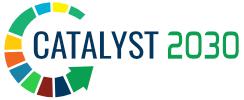This session will be a panel sharing challenges and solutions for conducting research under humanitarian conditions to evaluate impact of programs. Speaker’s bio: 1. Rana Dajani Professor of molecular cell biology, Hashemite University, Jordan, Harvard Radcliff fellow, a Fulbrighter, Eisenhower fellow, Yale and Cambridge visiting professor. Research area: refugee youth and the epigenetics of trauma across generations and world expert on genetics of Circassian and Chechan populations in Jordan. Established stem cell research ethics law in Jordan. Advocate for biological evolution and Islam, Member UN women Jordan advisory council. Established a women mentor network, and received Partnerships for enhanced engagement in research (PEER) award 2014. Organized the first gender summit for the Arab world 2017. Most influential women scientists in Islamic World, 12 among100 the most influential Arab women, Global Changemaker Award for celebrating, President of the Society for the Advancement of Science, Technology and Innovation in the Arab World. Awarded the Jordan star of science by His Majesty King Abdullah II. Developed a community-based model “We love reading” changing mindsets through reading to create changemakers, received World Innovation Summit in Education Award 2014, King Hussein Medal of Honour 2014, UNESCO International Literacy Prize 2017, World Literacy Council Award 2018 and the Jacobs social entrepreneurship award 2018, Science, Technology and Innovation Award UN 2019, Ashoka Fellow 2019, UNHCR Nansen Refugee awardee 2020, Schwab Social entrepreneur 2022. 2- Catherine Panter-Brick Catherine Panter-Brick is the Bruce A. and Davi-Ellen Chabner Professor of Anthropology, Health, and Global Affairs at Yale University. A medical anthropologist trained in human biology and the social sciences, she holds appointments in the Jackson Institute for Global Affairs, the Department of Anthropology, and the School of Public Health. Professor Panter-Brick is an expert on risk and resilience, having spent three decades working with people affected by violence, poverty, and marginalization. Her work with Syrian refugee youth is an example of scientific research evaluating the extent to which interventions can alleviate stress, boost resilience, and improve lives in war-affected communities. She has integrated methods from ethnography, cross-cultural psychiatry, child development, and stress biology to learn about the impact of violence on youth mental health in Jordan, Afghanistan, and Nepal. She has also led interdisciplinary research projects in Ethiopia, the Gambia, Nepal, Niger, Pakistan, Saudi Arabia, Tanzania, the UK, and just recently, the US-Mexico border. For her work in humanitarian areas, she received the Lucy Mair Medal, awarded by the Royal Anthropology Institute to honor excellence in the application of anthropology to the active recognition of human dignity. Prior to coming to Yale, she was a Professor of Anthropology at Durham University and a Fellow at St Hugh’s College, Oxford University. 3- Susanna Chui Susanna’s publications cover research areas in leadership and identity, social entrepreneurship, and social impact measurement. Her teaching encompasses leadership, social entrepreneurship, sustainability, corporate social responsibility (CSR), business ethics, and organizational behaviour. her research experience also extends to examining social impact measurement, CSR, stakeholder management and human resources issues in organizational contexts. Appointed by the Chief Secretary of the HKSAR Government, Susanna was part of the Social Innovation and Entrepreneurship Development Fund Task Force under the Commission of Poverty from 2012-2018. Moreover, she has been engaged in social innovation and social entrepreneurship as a Director of the Fullness Social Enterprise Society. Susanna has completed her PhD in Leadership at Durham University. Her Master of Research Degree in Leadership was accomplished with the University of Exeter. Her first Master in Mass Communications Research was obtained from the University of Leicester and she holds a Bachelor of Arts Degree in English from the University of York. 4- Heather Flowe: Professor Heather Flowe (School of Psychology, UoB) develops memory-enhancing, broad-reach, low-cost procedures that enable witnesses and victims to achieve their best evidence in criminal proceedings, particularly in the areas of sexual violence and criminal identification. She works with survivor organizations, legal practitioners (e.g., the CPS, the police) and governments to develop best practice guidelines for documenting and investigating incidents. With Professor Dajani, she leads the Rights for Time Research Network (https://www.rights4time.com, funded by the Arts and Humanities Research Council, Global Challenges Research Fund), which commissions community-led research on humanitarian protection in the Global South, as well as the CARE project
Catalysing Change Week | 1–5 May 2023
Solutions from the Frontlines
How to Conduct Research on Program Impact Under Humanitarian Conditions
10 May 2022 | 18:00 - 19:00
CEST
Virtual
(Policy) Roundtable discussion
The hosts
Rana Dajani
Catherin Panter-Brick
Susanna Chui
Heather Flowe
Sustainable development goals
GOAL 17: Partnerships to achieve the Goal
